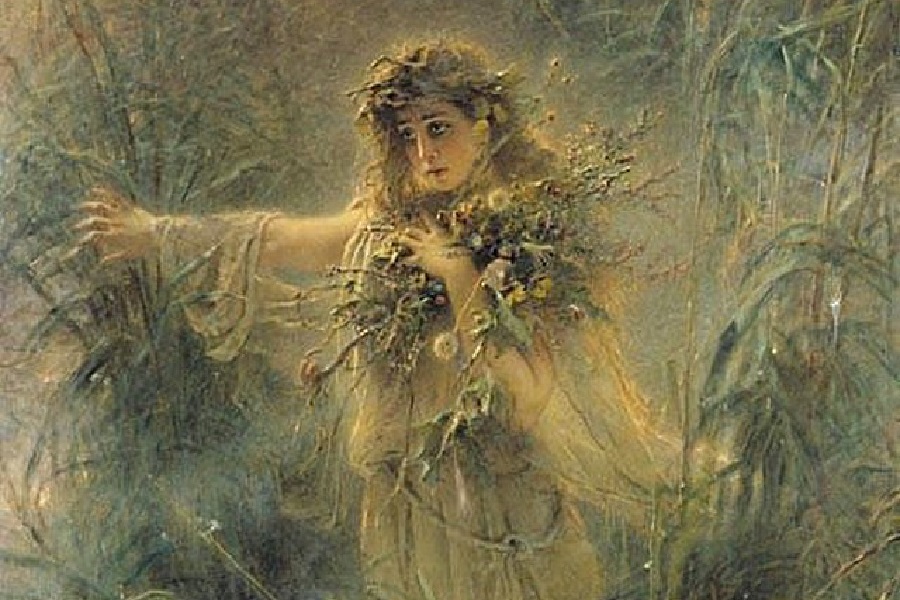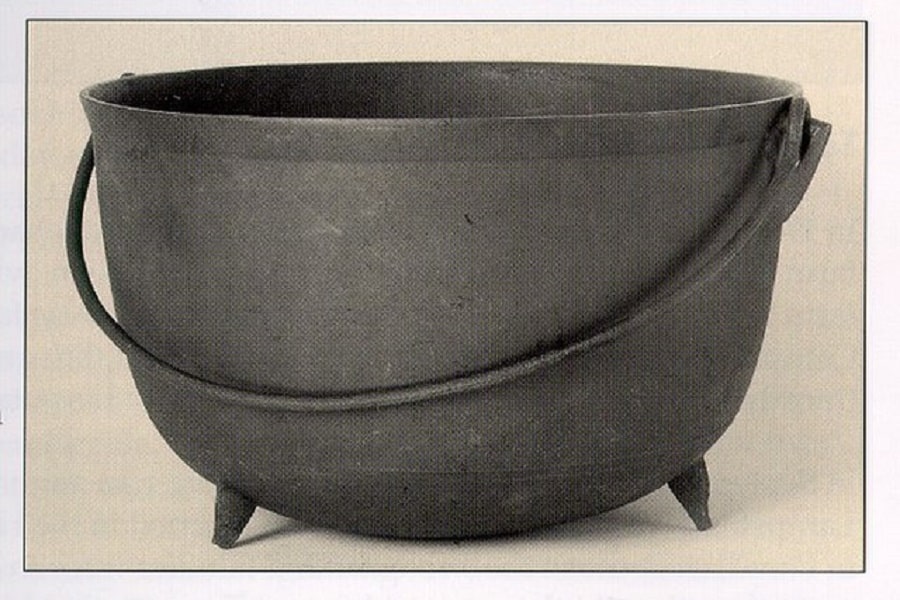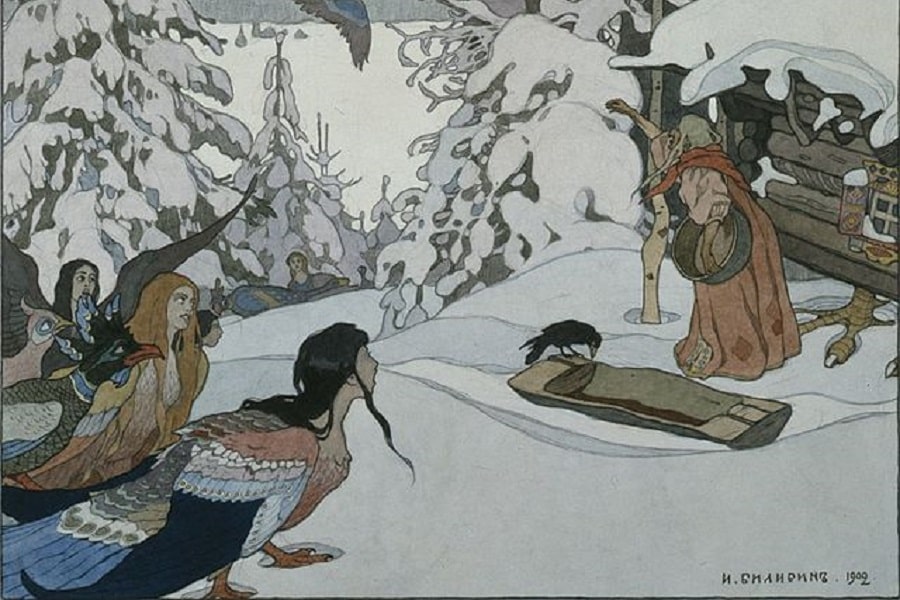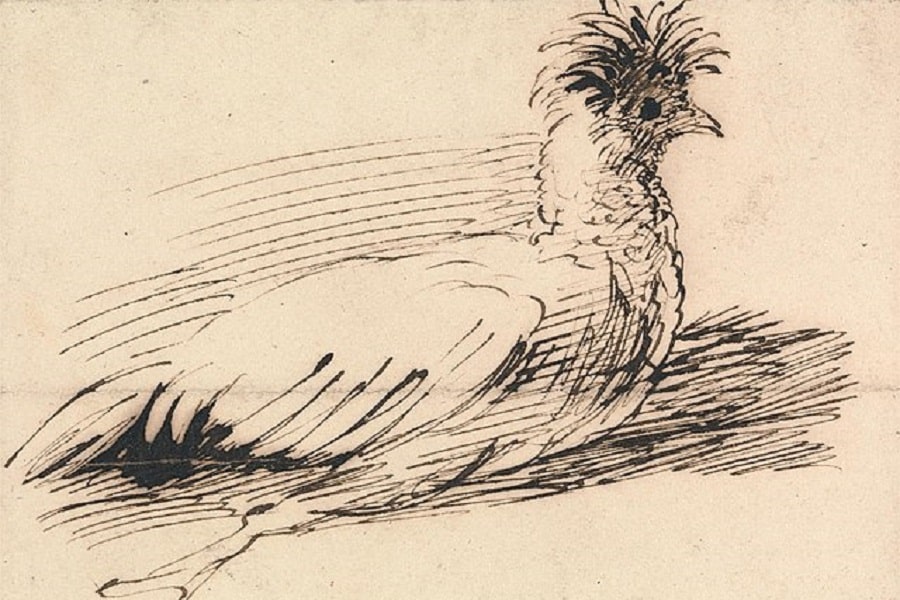The ability to inspire yourself and others is a great asset to have. It requires an innovative approach and just overall fantastic abilities in your specific craft. Whether we’re talking about poetry, music, cooking, or even things like work ethic, to be inspiring requires great skill and an unorthodox approach.
In Celtic mythology, Ceridwen was the goddess of inspiration and wisom. But she was also considered to be a witch. No matter how she is understoof though, she’s an important figure in ancient Celtic lore.
Table of Contents
Differences between Welsh and Celtic Origins

The goddess Ceridwen has Welsh origin. You might already be wondering what would be the difference between a Welsh origin and a Celtic origin. Well, it’s actually quite simple. Welsh is one of the languages that belong to the Celtic branch of languages.
For someone to be a Welsh goddess would therefore mean that her name and mythology are originally explained in that very language. While Cornish, Scottish Gaelic, Irish, and Manx are also considered Celtic languages, the myths of Ceridwen are originally explained in the Welsh language. Ceridwen is, therefore, a Celtic goddess but her story is originally told in the Welsh language.
READ MORE: Celtic and Irish Gods and Goddesses
Who is Ceridwen in Celtic Mythology?
In the myths, Ceridwen is by some considered to be heavily related to nature. Mostly, this has to do with one of the most prominent myths about her, to which we will return later. But, that’s far from the only thing she is considered to be and represent. Often, she is referred to as a white witch who is awen.
What is awen?
All is clear thus far, or at least for the people who know what awen means. For those who don’t know, it is used as the word for ‘inspiration’ in many Celtic languages. Specifically in Welsh mythology, it is seen as the thing that inspires poets, or bards, for writing their poetry.
When somebody ‘is’ awen, like our lovely goddess, it means that he or she is an inspirational muse or creative being in general. ‘Flowing energy’ or ‘force of life’ are also some things that are often used in relation to awen.

Ceridwen’s Cauldron
Besides possessing awen, the cauldron of Ceridwen was also a big reason for her powers. With the help of it, Ceridwen could brew you the most magnificent and life-altering potions, change her form without a problem, and bring knowledge and beauty to the world.
So, she is not the goddess of only animals and plants. In fact, she could probably be seen as the goddess of creation and inspiration.
The Meaning of the Name Ceridwen
If we want to know more about any mythological figure, we should take a closer look at the meaning of their names. While most of the common names today are more aesthetic than actually describing the person, what Celtic mythological figures represented can be derived straight from their names.
The name Ceridwen is normally analyzed by splitting the name into two parts, Cerd and Wen. The last part, Wen, most likely means woman, but it could also be interpreted as fair, blessed, or white.
Cerd, on the other hand, also has multiple meanings, for example bent, crooked, poetry, and song. A wise woman and a white witch (or white fairy) were terms that were used to refer to Ceridwen, and based on the above it’s not hard to see why.
As you can see, the name seems to have different meanings. In response, some might think that the value of dissecting the name can be discarded. But then again, can we be sure that these mythological figures actually had a universal meaning?
It is more so the interpretations of the people that worship them which make them significant. The name having different meanings, therefore, doesn’t seem to be a problem, since it just means that what Ceridwen represents differs per interpreter.
Ceridwen’s Cauldron
Before we briefly mentioned the cauldron of Ceridwen. Cauldrons are generally considered to be a sort of large metal pot that is used for cooking. How could it be that one of these cauldrons is so closely related to a goddess like Ceridwen?

Potions of Ceridwen
Well, cauldrons were not just used for cooking normal meals. In fact, Ceridwen used it to cook her potions that allowed her to perform her magic. While she had many magical powers without the cauldron, it definitely helped her to fulfill her role as the Celtic goddess of inspiration.
The effects of her magical Cauldron and the potions she brewed with it were diverse. For example, it allowed her to change the appearance of others. Because of her shapeshifting abilities, Ceridwen seems to have some similarities with trickster gods all over the world.
Yet, it’s not just shapeshifting. Her cauldron and its potions could actually be quite dangerous. Some potions would have the power to kill with just one single drop.
Ceridwen might be one of the witches found in Celtic mythology, but that doesn’t mean she wants to kill anyone. She would use her cauldron to brew potions for others but in a more altruistic sense. So, Although the cauldron of Ceridwen could be considered very helpful, she also had to be very careful about the ones she gives her potions to.
Cauldrons in Celtic Mythology
The cauldron of Ceridwen was not the only one that was of great significance in Celtic mythology. But, the one that Ceridwen used is considered to be the archetype of all cauldrons. Nowadays, it’s deemed a symbol of the underworld, but also a symbol that grants powers similar to the ones that Ceridwen’s cauldron was able to grant.
Is Ceridwen a Crone?
It might be a bit weird, but sometimes Ceridwen is depicted as a crone figure. The crone stands for her epitome of wisdom and creation, which was believed to be her role in a different ‘school’ of worship. This form of Ceridwen was mainly seen under modern neopagans.

READ MORE: 9 Important Slavic Gods and Goddesses
The Myth of Ceridwen
The story that Ceridwen is most known for is often called The Tale of Taliesin. It’s an epic story that appears in the cycle of the Mabinogi.
As a mother of a Welsh bard by the name of Taliesin, Ceridwen would reside at Bala lake, also known as Llyn Tegid. At Llyn Tegid she would live together with her giant husband Tegid Foel, as well as their two children. They had a beautiful daughter and an equally hideous son. Their daughter went by the name of Crearwy, while her brother was called Morfran.
While the beautiful daughter represented everything they wished for, the hideousness of their son Morfran was still something to be fixed through the magic of Ceridwen. Or, that’s what Ceridwen and her husband wished for. One day, the Celtic witch was brewing up a potion in her cauldron. It was meant to make Morfran both handsome and wise.
Ceridwen’s Servant Boy
Ceridwen and her husband had a servant boy by the name of Gwion Bach. One day, he was tasked with stirring the brew that would make Ceridwen’s son so beautiful. However, the servant boy started getting bored while stirring, and he became a bit careless. Some of the drops of the potion would touch his skin.
Nothing too bad, one would think. However, legend has it that only the first three drops of the cauldron were effective. You guessed it, those were exactly the three drops that would be absorbed by the servant. Instantly, he became as clever as they come, good-looking, and obtained the ability to shapeshift.
A Rat Race Only the Animals Could Have
Gwion Bach ran away, afraid of what would happen as soon as Ceridwen came back to the cauldron. He transformed himself into a rabbit, but Ceridwen found out his mistake quickly enough and would be transformed into a dog to chase the rabbit. In response, Gwion changed into a fish and jumped into the river. But, Ceridwen’s new form of an otter was quick to catch up.
From the water back to the land, or rather the sky. Indeed, Gwion changed himself into a bird and continued to run. However, Ceridwen chose a more powerful bird in the form of a hawk. Although Gwion was supposed to be clever, his next transformation was into a grain of corn. In the form of a hen, Ceridwen quickly swallowed the boy. Or rather, the grain of corn.

The Pregnancy of Ceridwen
But, what Ceridwen didn’t think of was the consequences which that would have. Sadly for her, the story went in an unexpected direction. By eating the grain, Ceridwen would become the mother of a third child. As expected, this child would be the rebirth of Gwion.
Ceridwen planned on killing Gwion as soon as he stepped foot on this earth. But, he was still possessing the beauty that was given to him by the potion. Ceridwen considered him to be too beautiful, which made her just put him into a leather bag and threw him into the sea. What a beautiful piece of poetry by a loving mother.
Taliesin
Eventually, the bag was found by fishers in the Dover River. After opening the bag, a baby boy was found. The story goes that Gwion was reborn as Taliesin, which stands for ‘how radiant his brow is’.
As soon as Taliesin would see sunlight, he would start speaking, reciting beautiful poetry and prophesying how the one who found him would defeat his enemies. The one who found him, in case you were wondering, was a prince by the name of Prince Elffin. Although he had been unlucky before, Taliesin would make him the most famous bard in Britain.
Taliesin would eventually become an adult and with that, of great influence in Celtic mythology. He was a poet, and a very knowledgeable historian, but also a great prophet. Some stories identify Taliesin as a character that actually has lived, although it’s hard to find a consensus on this topic.